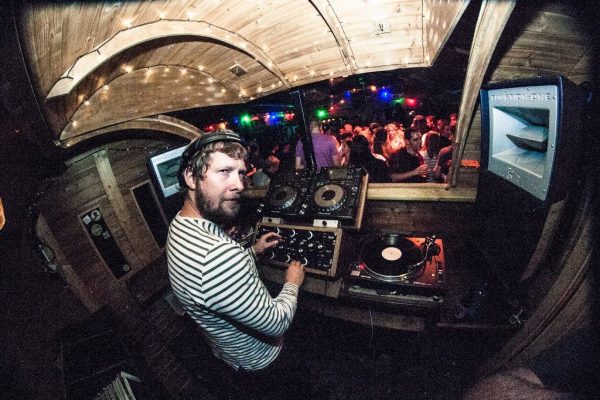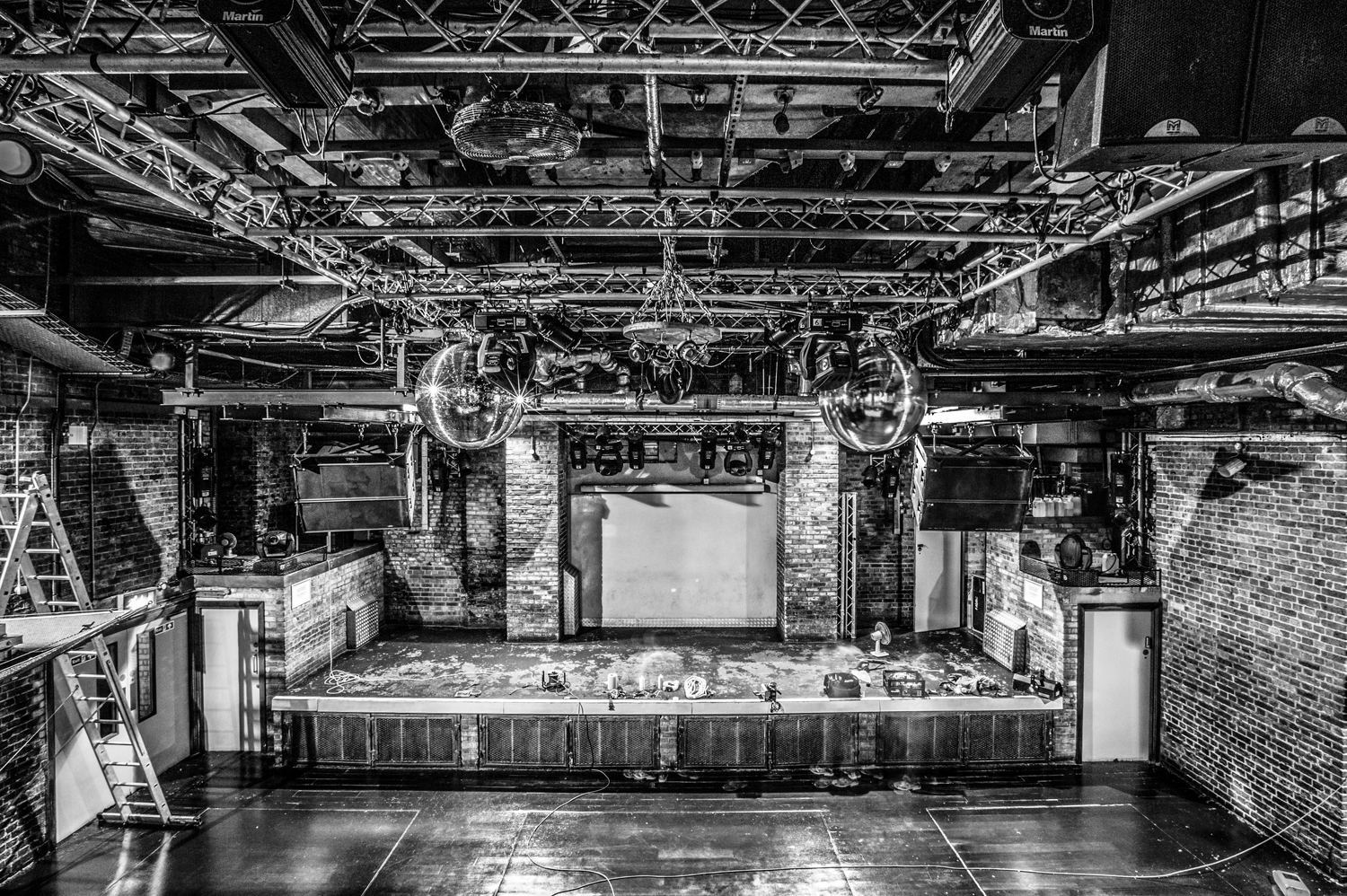Fabric has been an institutional light at the end of a tunnel for a generation of revellers that have always looked for the unparalleled experience of electronic music and the culture that has grown up around it. It’s given a platform to any experimental, innovative faction of electronic music where nothing is taboo and everything from Drum & Bass to Techno to House warrants an audience. They are facing one of the most difficult periods in their existence after the revocation of their license where they were being held accountable for actions outside of their control. They’re doors remain shut today as a result while they await they’re appeal hearing on the 28th of November, an appeal they hope to use to highlight some fundamental flaws in the UK licensing act, which they’ve taken upon themselves to fight at the highest possible level with the #saveourculture campaign. It’s a cause that’s rallied everyone from Four Tet to Richie Hawtin, and even here at Jæger we’ve given our annual autumn DJ marathon over to the cause. Because everyone that’s danced to a four/four beat in the context of club with your friends will most certainly know the universal effect this will have on clubbing and this culture. No-one knows this better than the DJs, the people that have turned this cultural phenomenon into a profession, so we roped a few of them in on our crusade to find out just exactly what effect Fabric has had on them, and what sort of future we’re facing if the cultural institution were to indeed go.
 Vinny Villbass (Producer, DJ, promoter – Sunkissed)
Vinny Villbass (Producer, DJ, promoter – Sunkissed)
What does fabric mean to you?
I’ve been subscribing to the fabric CD series since 2002, so I’ve always been following the musical development of the club. The Swayzak mix is still one of my favourites. Or the Halo & Hipp-e one that me and diskjokke was listening to again and again while driving trondheim-oslo-trondheim… or actually the very first with Terry Francis..or.. shit, there have been many.. Fabric has definitely had a big influence on my djing, even from across the pond.
What was your most memorable personal experience there?
When we organised the 100 years of Norwegian independence at Fabric in 2005. Olanskii was living in London at the time and booked pretty much all the relevant Norwegian acts to play. There was a club floor in room 3; jazz/electronic-floor in room 2; and metal/rock/pop in room 1. Definitely my longest day ever in London (if you subtract one particular corona-marathon-madness including mariachi-band and robeparty) Most of us were up, working for 28 hours straight to make it happen. Amazing experience!
How have you interpreted its role in club culture?
To put it in street lingo: “they’ve always had their shit together”. There are so many clubs around Europe that are unprofessional, messy and just completely mafia-driven, so a club like Fabric should really be a blueprint of how to run a club the right way.
What do you think its impact will be on this culture universally if it goes?
Unlike most others, I’m not afraid of losing Fabric as such. They have had some great years, and clubs come and go. Looking on the bright side, all the good people at Fabric will be spread around in other positions and the London scene will evolve. Politically, I’m obviously against the closure. Accidents do happen from time to time, especially when you gather such a big amount of people on a regular basis. Fabric should not be blamed, the illegal drug industry should!
 Finnebassen (Producer & DJ – Noir Music)
Finnebassen (Producer & DJ – Noir Music)
What does fabric mean to you?
Fabric was the first club I heard of outside of Norway. I heard stories that the actual floor had subwoofers in it, and that the bass would resonate through your body. Then I went there for the first time in 2010. I had already been at Fused at 93 ft east for a solid 8 hours, before we went to Wetyourself at Fabric and I saw what clubbing could be. Even though I had already been partying for a while, I just couldn’t leave. It was shock and awe. I had never seen a space like Fabric. It was jaw dropping. Keep in mind that I had never been to a proper club outside of Norway, so imagine the impact that impression had on me. We ended up staying until we couldn’t stand up right anymore. For me Fabric was a definitive catalyst in my choice to pursue music as a profession. For me it’s also one of those clubs that keep you hungry and makes you keep going. Playing at Fabric I think is a validation of your efforts in this business. It’s a place that demands that you try your best. They wont except anything else. I think Jaeger and Villa, or Sunkissed for that matter, exemplifies the same mentality to the Oslo scene. Fabric is also a huge contributor to the cultural value of London’s nightlife. They offer world class acts every weekend and cater to a very varied audience that like a lot of different kinds of music.
What was your most memorable personal experience there?
I have a couple. Playing room 3 with the You Are We crew was amazing! And playing with T-Williams in Room 2 was probably the best one! The people who work there are also extremely professional. Apart from that, it has to be Craig Richards 5 hours in Room 1. Holy Mother. That was a master class.
How have you interpreted its role been in club culture?
Well from what I’ve experienced first hand, is that they always have been on the forefront when it comes to security measures and that they take the running of the club extremely seriously. I was there once when there was a suspected rape in the club, and they contacted the police and did exactly what the police told them to do. They are eager to cooperate with law enforcement and they want matters that occur within club premises to be handled in the correct way. That is admirable and they should be applauded for it. I think most people will hold Fabric as a standard that they use to compare other clubs.
What do you think its impact will be on this culture if it goes?
I’m no fortuneteller, but I think the culture will continue to grow, like it always has. This industry is about innovation and progress, but there will be a huge gap to fill. If it’s even possible to fill the void that Fabric potentially will leave behind. If they decide to close, that is. I think the people that want to close Fabric will learn that closing a club will not solve the problems they are trying solve. If anything, it might make them worse. Fabric is a rock in this industry and the world of clubbing. People from all over the world will rally behind this cause. I sincerely hope that there are people with common sense in this world and that Fabric will stay open, and continue to offer the world clubbing at the highest level.
 Le Loup (DJ & Producer – Half Baked / Concrete)
Le Loup (DJ & Producer – Half Baked / Concrete)
What does Fabric mean to you?
Fabric is like Rex Club in Paris. It’s an institution in the UK. They bring a certain way of thinking about the industry and this music. It was interesting, because it is a huge club, but they also introduce new talents to the crowd. They were always pushing the limits of the music. They were visionaries. They brought a lot of unknown DJs to the community, and they trusted small DJs, because they have a reputation. It’s really important for the scene, because when you are not known, to play in a club with a serious reputation is really important.
What was your most memorable experience there?
The first tim e– It was room 1, the first time; I was really excited and impressed. It was an achievement for me; it was a good feeling. Because it was a known club, and you know when you play this club you’ll be recognised in the scene. It’s a really important point your career to play there, so when I had the opportunity to play there it was really special.
What do you think will happen when it’s gone?
I don’t know. It’s a bit sad but it’s not the first time a huge club has closed. For this community and this scene it will be hard. I heard it’s going to be harder for the people there. I’m sure there is someone who will open a new club, and the cycle will continue, but it’s a sad period.
Will it have a global affect on club culture, do you think?
Maybe a bit for a time, but I’m sure it it’ll continue. For example 5/10 years ago Paris was dead and now it’s back and evolving. London is a bit complicated but things will change. It’s about politics and law, but that can change you know.
 Olanskii (DJ, Promotor, Venue Operator – Sunkissed / Jæger)
Olanskii (DJ, Promotor, Venue Operator – Sunkissed / Jæger)
What does fabric mean to you?
As a Londoner, it was my second home for many years. It has played a pivotal role in shaping my own sound, but also my approach to running a club. Certainly with Sunkissed, back in the early days, I really wanted to build a club-night where you could start somewhere innocuous, reclusive, or deep if you like, and build it slowly on a trajectory as the night progressed. This has in many ways become the norm here too now. But back then, starting out mellow or with minimal oomph was somehow risky or not common practise. And in a sense it wasn’t about the beginning, but where this approach could lead to in the end. Perhaps even recreating a faint sense of that magical 7am movement that Fabric has always done so well.
But also many other aspects of Fabric have been instrumental in the way I work and set up the club (Jæger). Things you might not think of if you’re not actually running a club, like how the door flows (again Sunkissed took a few pages from this one), or using the stage as a dance-floor. And of course, the emphasis on a great soundsystem. I compare everything to Fabric’s main room. That’s not to say I want to copy that particular sound, but rather that feeling; sound that envelopes you, that moves you physically, and allows you to immerse yourself in the music, all without being painfully loud.
And then there are the people behind the club. Words will not do them justice, the reverence I have for Judy, Craig, Shaun, Keith, Terry and the rest of the team. Judy Griffith, booking the Saturday nights, has a workload that make my own seem like a teacher’s holiday, yet she will always find the time to come to check new people out. The number of times she came to the Nottinghillartsclub, and it would be me or g-Ha on a tumbleweed Thursday or something… She would still take the time, as she did with so many others. Everybody we’ve flown over, anybody who’s anybody who’s lived in London or played at Fabric, Judy knows them all. If I can ever raise my bar to a fraction of hers, I’ll be proud. And Speaking of Saturdays, there’s no way around the residents. I’ll say this again. Every club I’ve ever looked up to and loved, always put their residents first. And for me, Craig Richards is still one of the greatest, ever. Few can match his determined and singular focus. In the way he contributes to the direction of the club, but also as someone who has always kept it underground; never bought into loveharts, instasnapping, or vacant stadium size festival touring. Which gets me onto Keith Reilly. I think the last time we met, I took him and Craig to a triple bill with Susanna & The Magical Orchestra, Into the Country and Supersilent. At the end of the rather mental Supersilent gig, I found Craig at the back of the room, slightly discombobulated, and Keith at the front of the stage beaming. And this is Keith to me, every time I’ve meet him, its always been about music, rarely about House and Techno – his club has always spoken volumes about both – but something new, something fresh, something out there. Shaun Roberts heads up the most important Friday nights anywhere for Bass music and Drum & Bass. So much will be lost with it. So much music will lose its centre stage. To me he’s first of all a great friend, and someone who with aplomb manages to be both the centre of the party, and that guy who is making that Friday tick every week.
What was your most memorable personal experience there?
Easily Ricardo Villalobos vs Richie Hawtin. 2003 I think, but certainly 2004 and 2005. They all blend somewhat into each other as a mass of pure bliss. But there was this particular moment. I guess it was Ricardo getting into it, as for what seemed like half an hour, there was birdsong, low noises, creaking. And only that. With the whole room hanging on through the whole space out. Until a low rumble of bass – and my guess this coming from Richie – crept in until they finally let the whole thing rip with a massive kick. Well you can work out the rest.
O, and getting to warm up that main room twice. Few things will ever get close.
How have you interpreted its role in club culture?
Fabric is one of the greats. It stands tall among its contemporaries, be they in London, Ibiza, Berlin, Tokyo or New York. I’ll be telling my kids about Fabric, when they are old enough, as if it was my Paradise Garage. What set Fabric apart when it opened, was how it went against the super-club ethos of its time. Fabric was real, it was personal, and even if it was a big club, it was underground. It still is all of those things. It just needs its licence back like London needs Fabric back.
What do you think its impact will be on this culture universally if it goes?
The two issues that reverberate around the Fabric closure are about responsibility and security under the law. There is no denying the clubs bear a particular responsibility as licensed premises. And although clubs do not sell drugs, clubs do have a responsibility in averting their sale and use on their own premises. However, there are different kinds of responsibility. There is no argument around the need for effective measures to combat the use and sale of drugs. But should the club be held accountable when patrons manage to circumvent those measures, and cause themselves harm (in this case death)? Drugs get through airports, into prisons, and into parliament toilets. Stopping them entirely is not possible. And you need to balance measures with outcome. Clubs must be safe, but also places for joy and freedom. How do you balance these things?
And then there is security under the law. The report from The Metropolitan Police was long on hearsay and short on fact. Most of it related to one single night. Bar the two tragic incidents that happened this summer, there was little to back it up. But it wasn’t really necessary as the verdict was delivered by a handful of Islington Council civil servants, not a court of law. And this is typical of the disdain that licensing bodies in many parts of the world heap on the financial and personal investment made in clubs and venues. In no other business could a licence be revoked so fast, and with so little real due process. Your life’s work, your job, your favourite venue. It doesn’t take a butterfly.
This needs to change. In place must be an objective responsibly, measured on what is actually done. Not just the outcome, which could be chance or bad luck. And due process is needed. I for one, feel that Fabric is fighting a much bigger fight and what happens will reverberate elsewhere. That is why it is so paramount that we stand by them.

